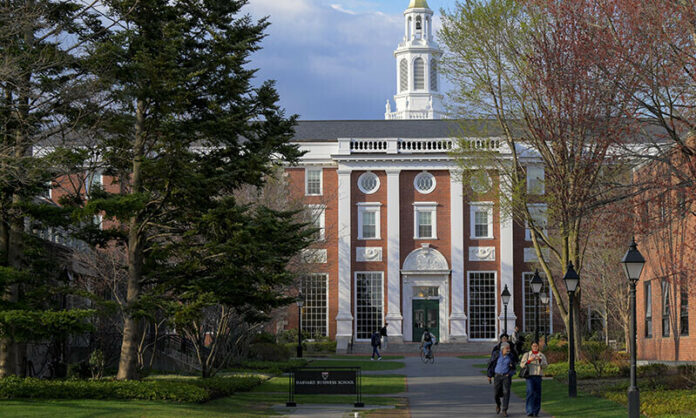In a scathing post on his Truth Social platform, former President Donald Trump slammed Harvard University as a “joke” and called for it to lose its government research contracts. His fury stems from the university’s refusal to bow to demands from the Trump administration for political oversight over admissions, hiring, and political slant.
Trump, known for his vocal critiques of elite institutions, argued that Harvard, which boasts 162 Nobel laureates, no longer deserved its place among the world’s top universities. “Harvard is a joke, teaches hate and stupidity, and should no longer receive federal funds,” he declared, criticizing the university for rejecting calls to submit to government control.
Trump Demands and Harvard’s Rejection
The Trump administration has long claimed that the U.S. educational elite is too liberal, and Harvard’s refusal to submit to political supervision fueled Trump’s outcry. He demanded the university allow government oversight in areas like admissions, staffing, and the content taught on campus. In particular, Trump targeted Harvard’s diversity programs and the perceived left-wing bias in academic circles.
Harvard’s president, Alan Garber, responded firmly, stating that the university would not compromise its independence or constitutional rights. In defiance of the administration’s pressure, Garber emphasized that Harvard’s commitment to academic freedom would not be negotiated.
Freezing Federal Funds and the Threat of Taxation
In retaliation for Harvard’s defiance, Trump ordered the freezing of $2.2 billion in federal funding allocated to the university’s research programs, particularly in the medical field, which has long been at the forefront of global scientific and medical advancements. This move was part of Trump’s broader attempt to rein in academic institutions he perceives as too liberal or ideologically biased.
In addition to the funding freeze, Trump threatened to strip Harvard of its tax-exempt status, a significant blow to the university’s financial stability as a nonprofit educational institution. This campaign against academic institutions is part of a broader push by Trump to challenge what he sees as unchecked liberal influence in U.S. universities.
The Broader Debate: Political Oversight vs. Academic Freedom
Trump’s clash with Harvard is not an isolated incident. It is part of a larger campaign to exert control over U.S. universities, many of which he accuses of harboring left-wing ideologies and encouraging anti-Semitism. This accusation gained traction following protests on campuses across the U.S. in response to the ongoing conflict in Gaza.
Trump Pushback from Academic Institutions
While Harvard has stood firm, other institutions have made concessions. For example, Columbia University in New York agreed to outside oversight of its Middle Eastern studies department after facing threats of losing $400 million in federal funding. These moves reflect the growing tension between the U.S. government and academic institutions over issues of academic freedom and political oversight.
Celebrity Support for Harvard
In the midst of this political storm, Golden State Warriors coach Steve Kerr voiced his support for Harvard, calling the Trump administration’s demands “the dumbest thing I’ve ever heard.” Kerr, sporting a Harvard T-shirt, defended academic freedom and argued that universities should have the autonomy to manage their own affairs without government interference.
What’s at Stake?
The stakes in this battle over academic freedom and political control are high. The Trump administration’s efforts to impose government oversight on educational institutions could set a dangerous precedent for the future of academic autonomy in the U.S. As the debate over academic freedom, diversity programs, and anti-Semitism continues, it will have long-lasting implications for universities and their role in shaping the future of education, research, and society.
For Harvard, the fight is not just about federal funds; it’s about preserving its identity as a beacon of independent thought and academic rigor. Whether the Trump administration’s pressure will force significant changes at Harvard—and other universities—remains to be seen, but this confrontation signals a shift in how political forces may attempt to influence education in America.



